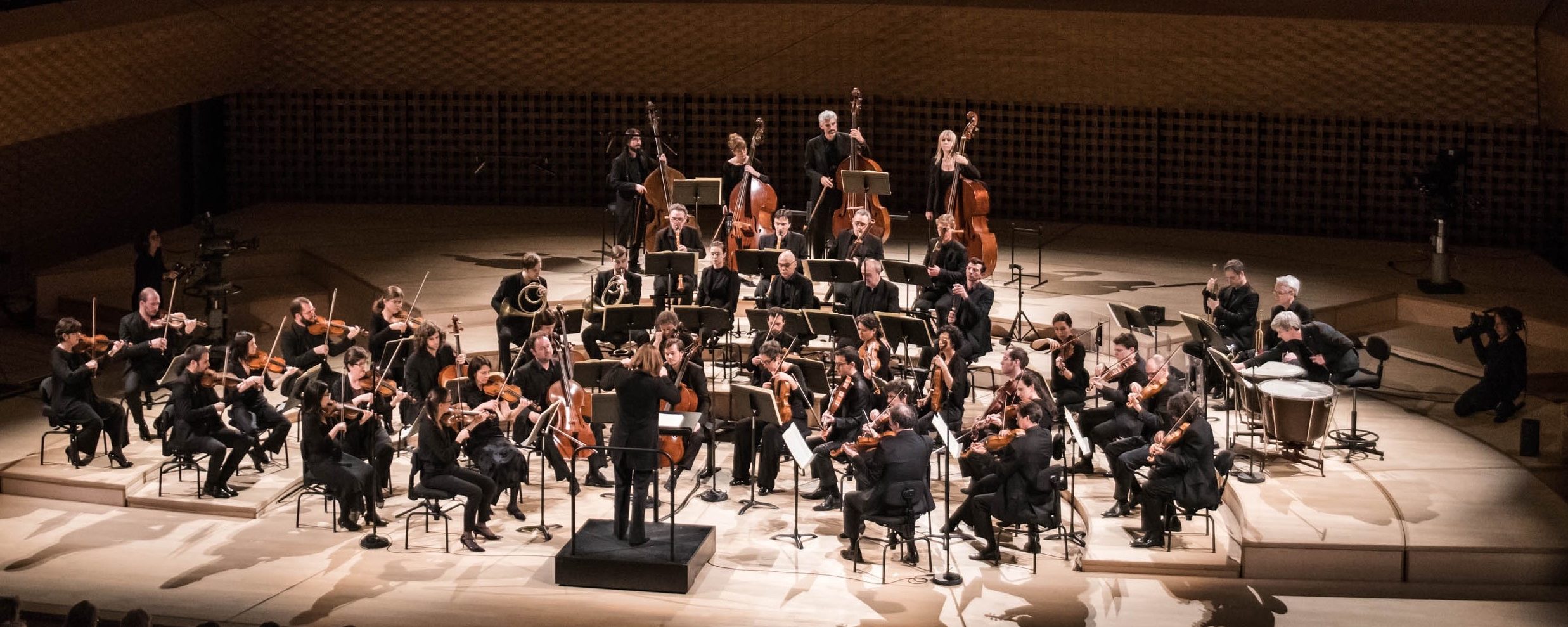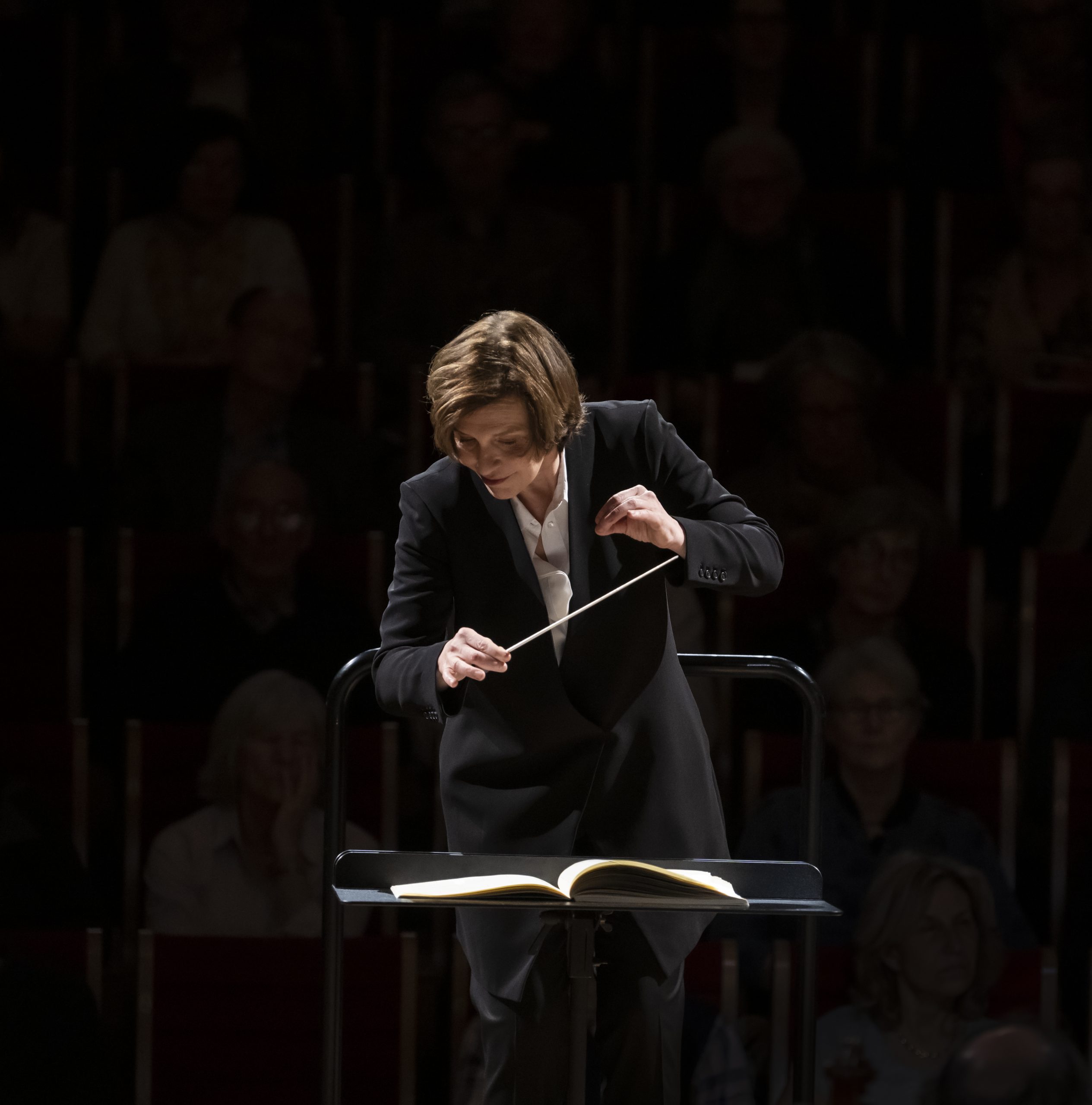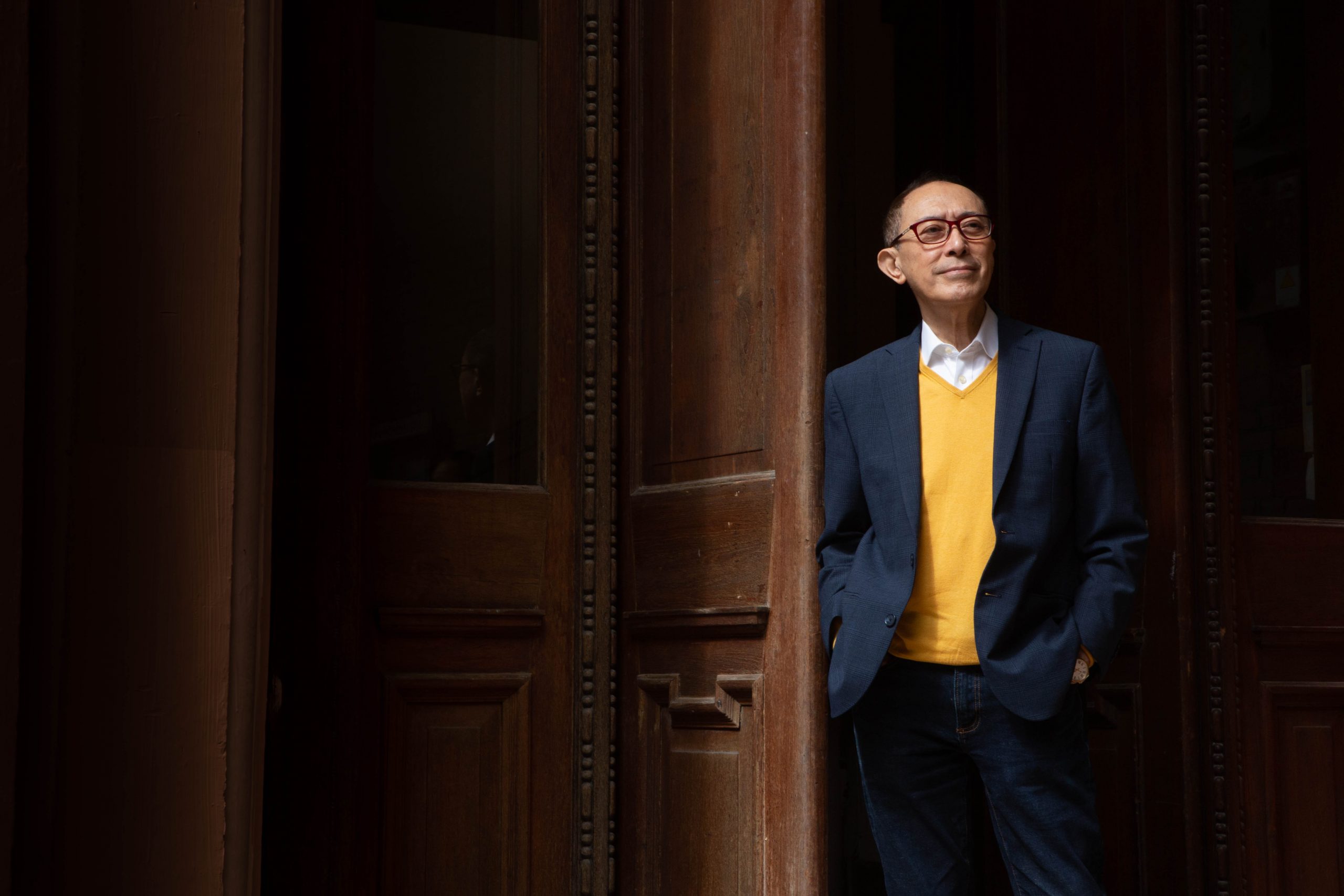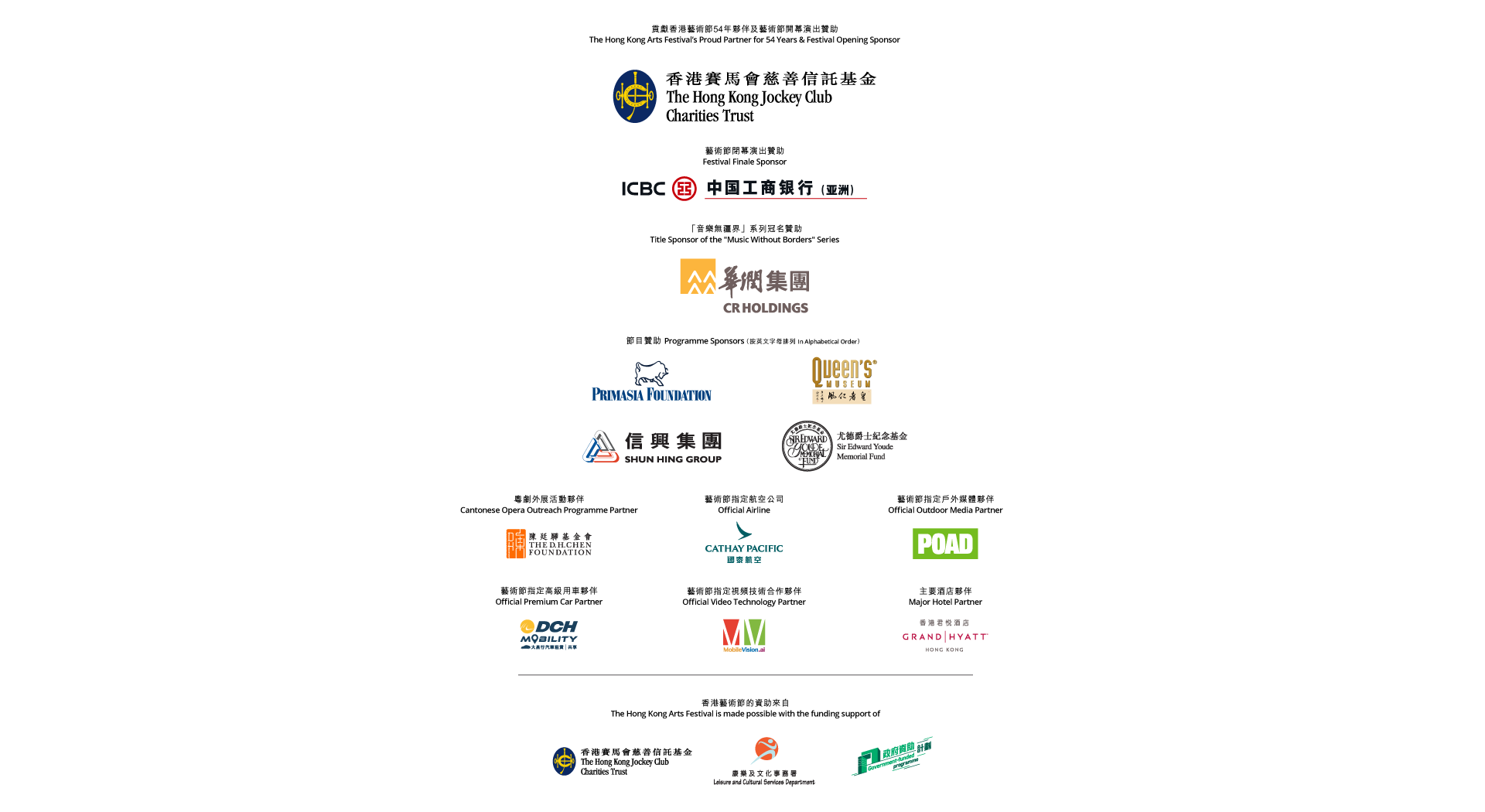The historically informed performance movement has opened up the realm of interpretation by enriching the subjectivity of artistic expression with the objectivity of scholarly study. And while critics have suggested that such performances are not really historical but a performance style that is completely of our own time, dedicated scholars, conductors and performers continue to infuse the sounds of yesterday with the artistic concerns of today.
Laurence Equilbey, the internationally acclaimed founder of the Paris-based Insula orchestra and accentus, is willing to go even further."The historical study of the context of the creation of a work, and the study of the practices of execution,"she tells FestMag,"helps us to relate the original thought of the composer and his real musical intentions."One way of returning to the source of inspiration in Beethoven, according to Equilbey, is to perform his music on the instruments of his time.
Equilbey fell in love with period instruments during her years of study with Nikolaus Harnoncourt in Vienna."He woke me up to the classical style of Mozart and Haydn, music that normally put me to sleep. It was a revelation for me."After guest appearances with the Concerto Köln, Orchestra of the Age of Enlightenment and the Akademie für Alte Musik Berlin, among many others, Equilbey founded her own orchestra to further develop her love for the musical repertoire of the 18th and 19th centuries."I wanted an orchestra that played period instruments,"she explains,"because the repertoire is sensational."For Equilbey, the creation of Insula orchestra was a dream come true as it allowed her to"specifically play the entire Classical and pre-Romantic repertoires, which I couldn't do with modern orchestras".

Revolution and psychology
Ludwig van Beethoven (1770-1827) was a revolutionary man who lived and worked in revolutionary times, and his music represents a turning point in human artistic expression. Although he initially built his creations on the musical conventions, genres and styles of an inherited Classical tradition, his subsequent explorations and highly personal expressions allowed music to escape the superficiality of entertainment and virtuosity. Beethoven elevated musical expression to a new level of consciousness with psychology and drama becoming integral components of his musical syntax. His music is uniquely capable of revealing and uncovering the uneasy and sometimes troubling aspects of the human condition, and the instruments of his time easily adapted to the suppleness of his musical style.
Listening with subtle changes
To hear Beethoven's music performed on period instruments is to experience a familiar sonic landscape in a completely new way. As Equilbey explains,"the strings are incredibly lively and allow for certain passages to radiate harmonic transparency, while the orchestral density of other sections can be restored". Horns and natural trumpets blend much better with the woodwinds than modern instruments and produce"a very organic sound". Since trombones have a smaller bore,"the balance with the other instruments is much improved, and the period timpani produce a more dynastic and colorful sound". However, most important to Equilbey is the fact that"the musicians who play these period instruments are familiar with style-appropriate instrumental techniques and performing style". Equilbey frequently performs the music of Beethoven with a double orchestra,"meaning lots of strings and all the winds doubled, as was sometimes done in Beethoven's time in larger halls. This provides a lot of power without losing flexibility".
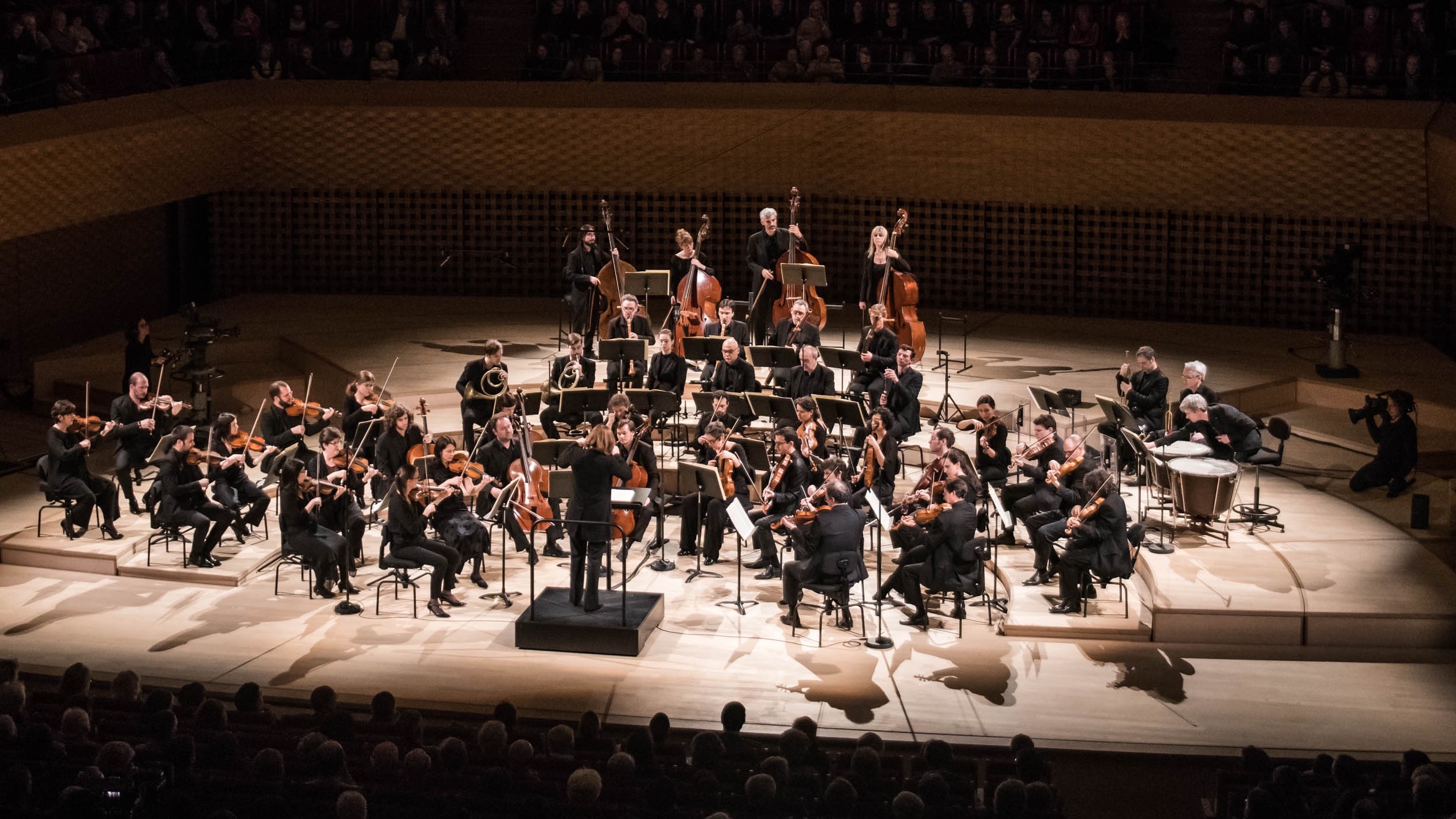
A difficult premiere
The 2023 Hong Kong Arts Festival programme"Beethoven on Period Instruments"presents an eclectic repertoire that showcases the diversity of Beethoven's oeuvre. Seemingly uncomfortably sandwiched between the monumental Eroica and the thematic organicism of his Fifth Symphony, Beethoven's B-flat major orchestral essay is frequently overlooked and underperformed. Shortly after Beethoven's death, Robert Schumann poetically called the Fourth Symphony"a slender Grecian maiden between two Nordic giants". Beethoven specifically composed the Choral Fantasy for a gargantuan benefit concert that also included the premieres of his Fifth and Sixth Symphonies, and the Fourth Piano Concerto. He even commissioned a poet, whose identity is still disputed, to write words that would fit the already composed musical parts. The work was advertised as"an improvisation for piano with gradual entrance of the orchestra and finally a choral section and finale". Since the benefit concert was scheduled at a busy time of the year, Beethoven had great difficulty in summoning adequate musical forces.
A triumphant new performance
There are no such concerns for the HKAF performance in 2023, as Insula orchestra and accentus have enlisted the help of Mainland Chinese pianist Yuan Sheng. An award-winning pianist described as"an artist of the highest quality",Sheng performs on a 19th-century piano from a museum in Shenzhen; the piano's characteristics are close to the instruments of Beethoven's time.
Her scientific approach allows for a reflection on all aspects of the modes of playing, musical style and the number of musicians. It is important to"get as close as possible to the true meaning of a work, and communicate our findings to as many people as possible", says Equilbey. Her probing insight into the psychological nature of music and its reception is what historically informed performance practice is all about: "learning where the expression, and contrast lives in the music."
Insula orchestra and accentus—Beethoven on Period Instruments
Detail:https://www.hk.artsfestival.org/en/programme/s_insula_beethoven
Members of Insula orchestra and accentus flew to and from Hong Kong on Finnair, Official Airline of the 51st Hong Kong Arts Festival.


